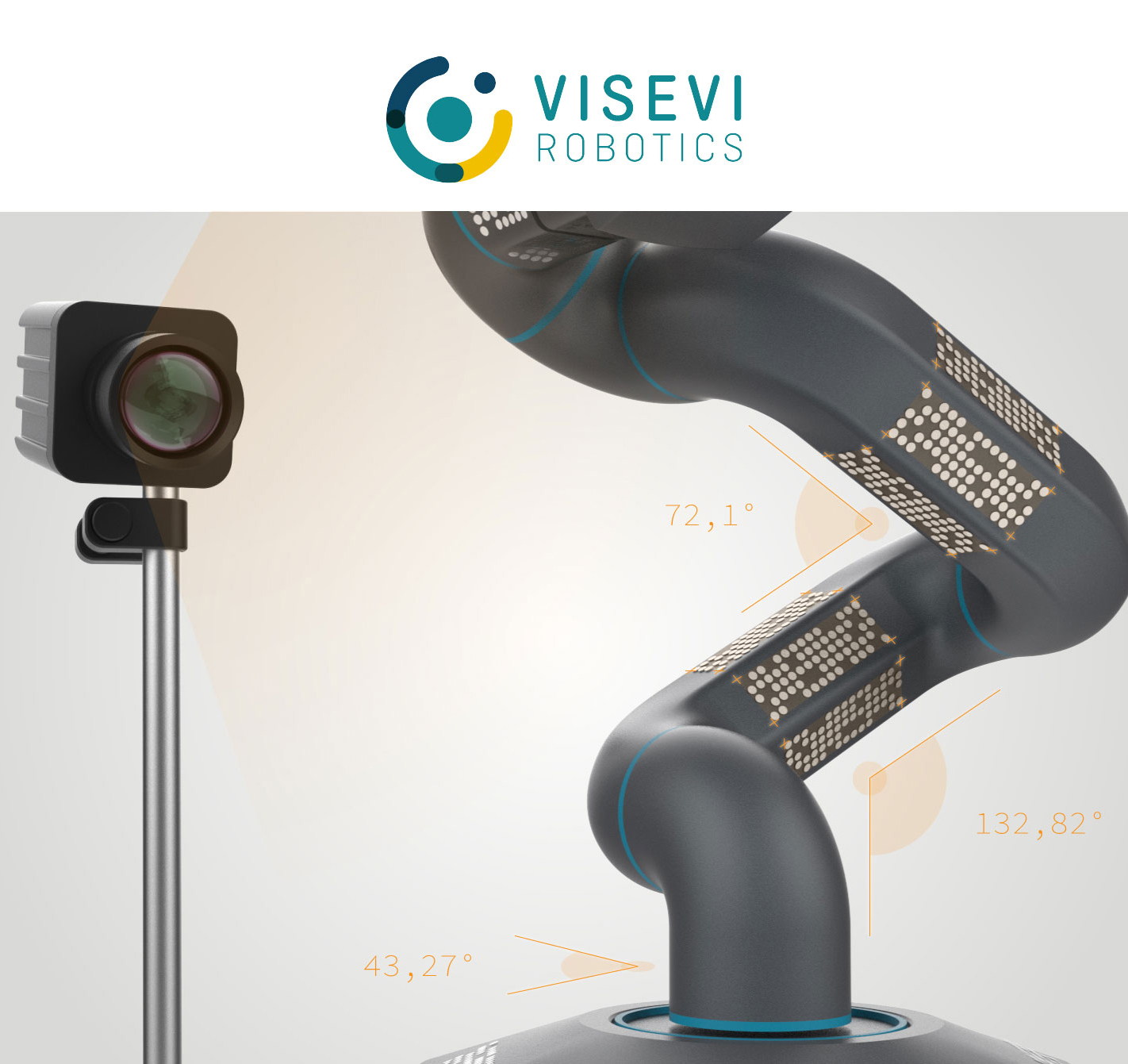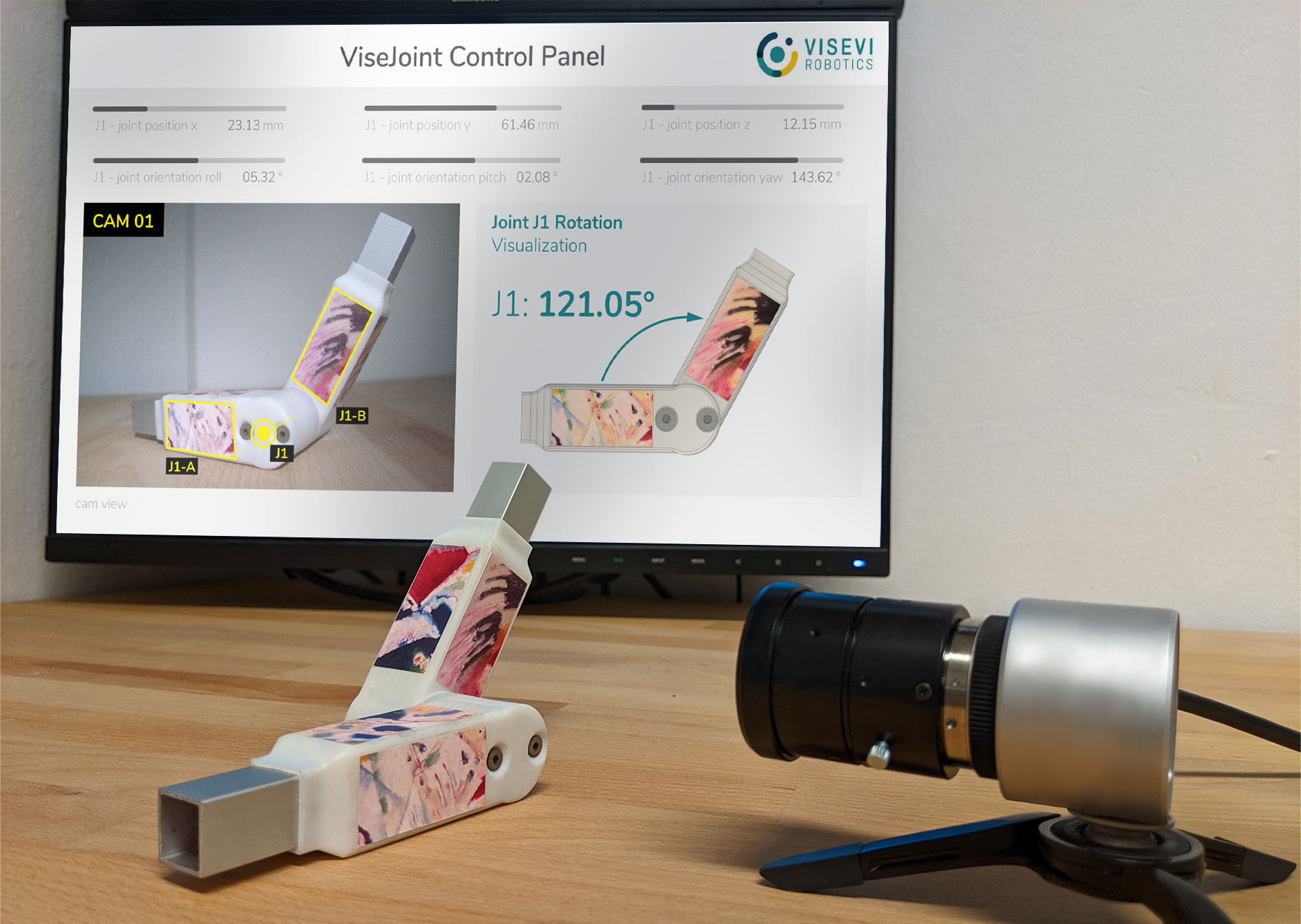Visevi Robotics GmbH is a startup from Munich, Germany, that focuses on computer vision products for sensing and
for grasping on smart robots. The patented technology of camera-based sensing is available for tactile data,
force-torque and joint angles and has been developed with Technical University of Munich.The new development,
ViseJoint is a virtual, software-based sensor based on computer vision that measures angular positions of joints
(angular encoder). Multiple joints and even kinematic chains are measured simply by looking at them with a
camera. Sensing and control works remotely and is purely camera-based. Like that, mechanic components do not
need to integrate any sensor, nor electronics or wiring.
The system is available as a software package for
any standard PC and for many embedded systems. It connects to most standard cameras (USBVision, UVC, Ethernet)
and provides angular readings for all observed joints. The user only needs to attach textured markers onto the
joints. A development kit is also available to get started right away.
Applications include mechanical systems with one or multiple rotational joints that require angular position
control, as long as remote sensing is feasible. This includes automation systems, in which multiple components
with rotational axes may be monitored by a single camera. For the control of robot arms, especially for service
robotics, camera-based encoders measure chains of multiple joints with a pair of markers. Camera-based encoders
can also be used for calibration tasks, e.g. to initialize a relative encoder, or as a second channel in
conjunction with existing encoders.
A setup showcasing the use of the Visevi ViseJoint software
externally measuring the angle of a demonstration joint and displaying the captured information on a dashboard.
A camera (right) captures images of the joint (center), in which the positions and orientations of the markers
are captured (left image on the monitor). This serves as the input for the ViseJoint software sensor to
calculate the joint angle (visualised in the right image on the monitor), as well as detailed information about
each of the joints halves.


